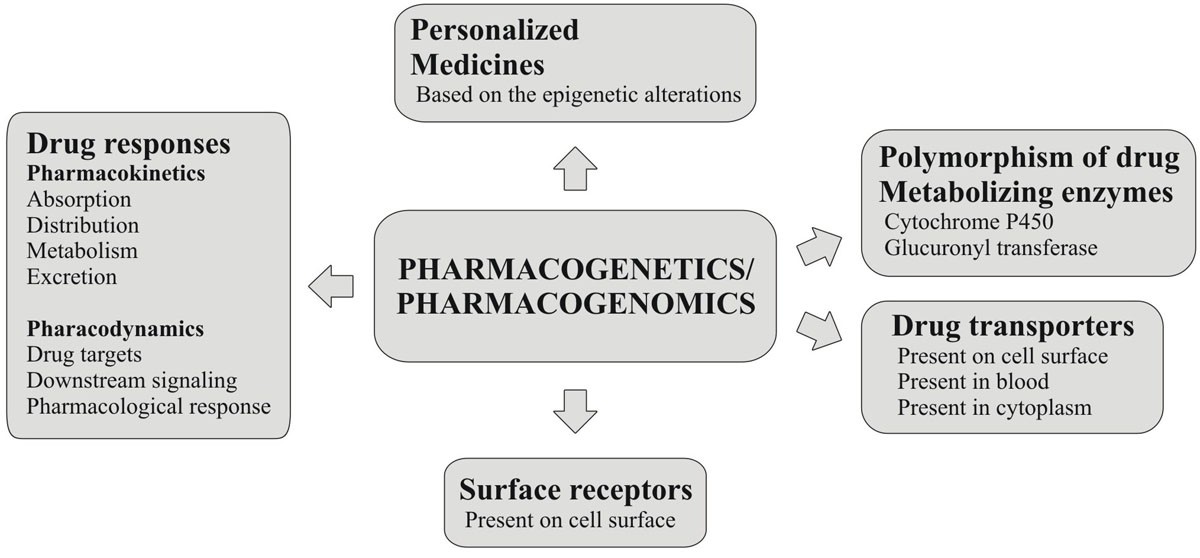HEALTH
Weight Loss Drugs for Diabetics: A Guide to Better Health Management

Living with diabetes presents a unique set of challenges, particularly when it comes to managing weight. Excess weight is a major contributing factor to the worsening of diabetes symptoms, and it can make controlling blood sugar levels even more difficult. Fortunately, advances in medical treatments have introduced effective weight loss drugs designed specifically for individuals with diabetes. These medications can help diabetics shed pounds safely while managing their blood sugar levels. For those seeking personalized care and guidance, Sanctuary Wellness Institute Tallahassee, FL provides excellent resources and expertise in diabetes management, including weight loss solutions.
Among the most notable medications for weight loss in diabetics are Semaglutide and Dulaglutide, both of which are GLP-1 receptor agonists. However, many people have questions about how these medications work, why they may not always produce the expected results, and what to do if a particular treatment isn’t working for them. This article will dive into the details of weight loss drugs for diabetics, explore their effectiveness, and address the common concern, “Why is Semaglutide Not Working for Me?”
The Importance of Weight Loss for Diabetics
Managing weight is crucial for individuals with type 2 diabetes. Studies show that even modest weight loss can help reduce insulin resistance, improve blood sugar control, and lower the risk of complications related to diabetes. For many diabetics, losing weight is not just about looking better but feeling better and living a healthier life.
Incorporating effective weight loss strategies, such as medications and lifestyle changes, can significantly impact overall diabetes management. This is where the right weight loss drugs come into play. By reducing body fat, these drugs can help diabetics regulate their blood sugar more efficiently, thus contributing to a better quality of life.
If you’re considering weight loss medications, consulting with a healthcare provider is a key step. Sanctuary Wellness Institute Tallahassee, FL offers tailored advice and treatments for individuals with diabetes, helping them explore weight loss options that align with their personal health needs.
Semaglutide: A Breakthrough in Weight Loss for Diabetics
Semaglutide has emerged as one of the most groundbreaking drugs for weight loss, especially for people with type 2 diabetes. It works by mimicking the action of a natural hormone called GLP-1 (glucagon-like peptide-1), which is involved in regulating blood sugar and appetite. By enhancing the effects of this hormone, Semaglutide not only helps manage blood sugar but also reduces hunger, leading to fewer calories consumed.
Clinical studies have demonstrated that Semaglutide can lead to significant weight loss. Patients who used this drug in combination with lifestyle modifications saw impressive reductions in body weight, often exceeding 15% of their total body weight. This makes Semaglutide a highly effective option for weight loss in diabetics, especially those who have struggled to shed pounds with traditional diet and exercise alone.
However, as with any medication, Semaglutide is not a one-size-fits-all solution. There are instances where patients may wonder, “Why is Semaglutide Not Working for Me?” It’s important to remember that weight loss results can vary. Factors such as lifestyle, other health conditions, and adherence to prescribed regimens can all influence the drug’s effectiveness.
Dulaglutide: A Strong Alternative for Weight Loss
Another excellent option for diabetics seeking to lose weight is Dulaglutide. Like Semaglutide, Dulaglutide is also a GLP-1 receptor agonist, but there are some differences in how the medications are administered and their specific effects on the body. Dulaglutide is typically given as a once-weekly injection, whereas Semaglutide is available in both weekly and daily forms.
Dulaglutide works similarly to Semaglutide by enhancing insulin production and regulating appetite. It has also shown promising results in weight loss, with many users reporting significant reductions in body fat. For diabetics who prefer a once-weekly injection, Dulaglutide might be a more convenient option compared to other medications that require more frequent administration.
If you’re unsure about which medication might be best for you, seeking guidance from a professional at Sanctuary Wellness Institute Tallahassee, FL can help. The team there can assess your health and recommend the most suitable weight loss drug for your specific needs.
Why Is Semaglutide Not Working for Me?
If you’ve been using Semaglutide for weight loss and aren’t seeing the expected results, you may be wondering, “Why is Semaglutide Not Working for Me?” There are several potential reasons why Semaglutide may not be as effective as anticipated.
- Inconsistent Use: One common reason for reduced effectiveness is irregular use. Semaglutide is typically administered once a week, and it’s essential to stick to the prescribed schedule to ensure the medication has the desired effect. Skipping doses or not adhering to the recommended plan may diminish its weight loss benefits.
- Diet and Exercise: Medications like Semaglutide are designed to complement a healthy lifestyle. If you’re not following a balanced diet or engaging in regular physical activity, the medication may not yield the same weight loss results. It’s important to pair the medication with proper nutrition and exercise to maximize its benefits.
- Underlying Health Conditions: In some cases, other health conditions may hinder weight loss, even with the use of Semaglutide. For instance, metabolic disorders or hormonal imbalances could make it more difficult for the body to lose weight, despite medication. A thorough evaluation by your healthcare provider can help identify any other potential factors at play.
- Individual Variations: Everyone’s body responds to medication differently. While Semaglutide may work wonders for some, others may experience less dramatic effects. If you’re struggling with weight loss despite using the medication correctly, it might be time to explore alternative treatments, such as Dulaglutide or other weight loss options.
In any case, consulting with a healthcare provider is crucial. If you’re struggling with Semaglutide or wondering why it isn’t working, reaching out to a professional at Sanctuary Wellness Institute Tallahassee, FL can help you reassess your treatment plan and make any necessary adjustments.
Benefits of Weight Loss Drugs for Diabetics
The benefits of weight loss drugs for diabetics extend beyond shedding pounds. Here are just a few ways these medications can positively impact your health:
- Improved Blood Sugar Control: Weight loss medications like Semaglutide and Dulaglutide can help regulate blood sugar levels, reducing the need for insulin and other medications.
- Reduced Risk of Diabetes Complications: Losing weight can lower the risk of complications such as heart disease, nerve damage, and kidney problems that are often associated with diabetes.
- Better Quality of Life: Managing weight can help improve mobility, energy levels, and overall well-being, enabling diabetics to live more active and fulfilling lives.
- Convenience: Medications like Semaglutide and Dulaglutide are often easy to administer, with weekly injections that require minimal effort, making them convenient for individuals with busy schedules.
Finding the Right Weight Loss Program for You
Choosing the right weight loss program for diabetics involves finding a solution that combines effective medications with a sustainable lifestyle plan. This may include diet and exercise counseling, regular monitoring of your health, and ongoing support from healthcare providers. At Sanctuary Wellness Institute Tallahassee, FL, personalized weight loss programs are designed to address the unique needs of diabetics, ensuring that you get the support and care you need to succeed.
With a combination of medical guidance, medication like Semaglutide or Dulaglutide, and behavioral changes, diabetics can achieve lasting weight loss and better manage their condition. Don’t wait to take the first step—reach out to Sanctuary Wellness Institute Tallahassee, FL, and get the support you need to begin your journey toward better health today.
Frequently Asked Questions
- What is the difference between Semaglutide and Dulaglutide?
Both are GLP-1 receptor agonists, but Semaglutide is available in both weekly and daily forms, while Dulaglutide is typically administered once a week. Both medications help regulate blood sugar and support weight loss.
- How long does it take to see results with weight loss medications?
Results can vary, but many people start seeing noticeable improvements within a few weeks. The combination of medication, diet, and exercise plays a crucial role in achieving optimal results.
- Can weight loss medications be used long-term?
Yes, many weight loss medications, including Semaglutide and Dulaglutide, are safe for long-term use under the supervision of a healthcare provider. However, ongoing monitoring is important to ensure their continued effectiveness and address any potential side effects.
- Are there any side effects of Semaglutide and Dulaglutide?
Common side effects include nausea, vomiting, and gastrointestinal issues. However, most side effects are temporary and tend to subside as your body adjusts to the medication.
- What should I do if Semaglutide isn’t working for me?
If you’re wondering, “Why is Semaglutide Not Working for Me?”, it’s important to consult with your healthcare provider. They can help identify the underlying reasons and offer alternative treatments or strategies to help you achieve your weight loss goals.
HEALTH
Navigating Alzheimer’s: Essential Resources for Caregivers and Families

Alzheimer’s disease presents a myriad of challenges for patients and their loved ones, navigating the complex terrain of long-term care, emotional support, and financial management. It requires a comprehensive understanding of the disease, a thorough knowledge of available resources, and significant emotional resilience. As caregivers and families confront these difficulties, it’s essential to have access to reliable information that guides decision-making and provides reassurance during these trying times. Below, we outline critical aspects of Alzheimer’s care to assist caregivers and families in managing this journey effectively.
Understanding Alzheimer’s Disease: A Guide for Caregivers and Families

Alzheimer’s disease is a progressive neurological disorder that impairs memory, cognitive function, and the ability to perform everyday activities. It’s the most common form of dementia, affecting millions of people worldwide. As the condition advances, patients may experience a significant decline in communication skills, undergo personality changes, and require constant care.
Caregivers and families must prioritize education on Alzheimer’s to effectively respond to these changes. Understanding the stages of the disease allows for proper planning and the implementation of suitable care strategies. It’s critical to recognize the symptoms early on to seek professional medical advice and establish a care plan that accommodates the patient’s evolving needs.
Organizations like the Alzheimer’s Association provide a wealth of information on the disease, offering resources to help families and caregivers understand Alzheimer’s better. They also suggest coping mechanisms and interventions that can improve the quality of life for both patients and caregivers throughout the progression of the illness.
Coping Strategies for Alzheimer’s Caregivers
Alzheimer’s caregivers often face significant emotional and physical stress. Developing coping strategies to manage the demands of caregiving is imperative for maintaining their health and well-being. Learning about the disease, joining support groups, and setting realistic goals can help caregivers manage their expectations and foster a sense of control.
Respite care services can provide caregivers with a much-needed break, ensuring they have time to rest and recharge. Establishing a routine for the patient can also reduce anxiety and confusion, creating a stable environment that benefits both the caregiver and the patient.
Self-care should be a priority for caregivers. Engaging in regular exercise, maintaining a healthy diet, and seeking mental health support can prevent burnout. Friends, family, and community resources can be invaluable in offering assistance and emotional support.
Legal and Financial Planning for Alzheimer’s Families
Early legal and financial planning is fundamental upon an Alzheimer’s diagnosis. Families should consult legal professionals who specialize in elder law to prepare necessary documents such as powers of attorney, wills, and health care directives. These measures ensure the person with Alzheimer’s wishes are respected and decisions are made in their best interest.
Financial planning is equally important to manage the high costs associated with long-term Alzheimer’s care. Creating a financial strategy that accounts for current savings, potential benefits, and anticipated costs can help alleviate future financial strain. Professional financial advisors can pinpoint strategies to preserve family assets while ensuring the patient receives the necessary care.
Benefit programs should be explored in depth, such as Social Security Disability Insurance (SSDI) for patients who are under retirement age, or Veterans’ benefits if applicable. Being proactive and familiarizing oneself with these programs helps secure the necessary resources without unnecessary delays.
Community Resources and Support Networks for Alzheimer’s Care

Connecting with community resources and support networks can be the lifeline that caregivers need. Local Alzheimer’s associations often offer workshops, support groups, and educational materials. These networks not only provide practical advice but also a sense of camaraderie among individuals facing similar challenges.
Area Agencies on Aging and community centers can also provide valuable services such as adult day care, transportation assistance, and meal programs. Taking advantage of these resources reduces the isolation that many Alzheimer’s caregivers experience and introduces new sources of help and encouragement.
Online forums and social media groups are increasingly popular among caregivers seeking advice and empathy from peers across the globe. Sharing experiences and solutions online can lead to innovative caregiving strategies and emotional relief.
Altogether, confronting Alzheimer’s disease demands a multi-faceted approach that includes education, healthcare navigation, emotional coping strategies, legal and financial preparations, and community support. These pillars of Alzheimer’s care provide the guidance and resources necessary for families to face the challenges of dementia with strength and resilience.
HEALTH
Spectrum Multivitamin: Nutrition for Child Development

As parents, making sure our children get the right nutrients for their growth and development is a top priority. Multivitamins play a crucial role in filling nutritional gaps, especially for picky eaters or those with dietary restrictions. Spectrum multivitamin is designed to provide essential nutrients that support a child’s overall development, making it a helpful part of their daily routine.
The spectrum multivitamin is full of different vitamins and minerals that are essential for children’s health. These nutrients help with growth, boost the immune system, and improve brain function. In the sections that follow, we will explore the unique benefits of spectrum multivitamin for kids, the role of spectrum vitamins and minerals, and how to choose the right multivitamin for your child.
Why Choose Spectrum Multivitamin for Kids?
Choosing the right multivitamin for your child can be overwhelming, but spectrum multivitamin has several benefits that make it a great choice:
- Tailored for Children: Spectrum multivitamins are specifically formulated to meet the nutritional needs of growing children, ensuring they receive the right balance of vitamins and minerals.
- Supports Growth and Development: These multivitamins contain essential nutrients like calcium, vitamin D, and iron, which are crucial for bone health and cognitive development.
- Boosts Immune System: With vitamins like C and E, spectrum multivitamins help strengthen the immune system, keeping children healthier and more resilient to common illnesses.
According to WebMD, multivitamins can fill nutritional gaps and provide a safety net for essential nutrients that might be missing from a child’s diet. This is particularly important during growth spurts when their nutritional needs are higher.
Understanding Spectrum Vitamins and Minerals
Spectrum vitamins and minerals are important parts of a balanced diet, especially for children. These nutrients help with body functions and overall health. Spectrum vitamins include a wide range of vitamins such as A, B, C, D, and E, each contributing to different aspects of health. Minerals like calcium, iron, and magnesium are equally important, aiding in bone development, oxygen transportation, and energy production.
For children, having a diet rich in these vitamins and minerals is important for their growth. According to Harvard’s Nutrition Source, these nutrients help in building strong bones, boosting the immune system, and supporting brain development. Ensuring that children receive the right amount of spectrum vitamins and minerals can make a significant difference in their health and development.
Simple Spectrum Multivitamin: A Comprehensive Solution
The simple spectrum multivitamin provides a full solution for children’s nutrition needs. It is made to give a balanced mix of important vitamins and minerals just for kids. This formulation ensures that children receive the nutrients they need for optimal growth and development.
Some of the features that set the simple spectrum multivitamin apart include:
- Balanced Nutrient Profile: It contains a well-rounded mix of vitamins and minerals that cater to the specific needs of children.
- Easy to Digest: Formulated to be gentle on the stomach, making it suitable for daily use.
- Supports Overall Health: Helps in boosting immunity, enhancing cognitive function, and promoting strong bones.
Choosing a simple spectrum multivitamin can be a great step towards ensuring that your child receives all the essential nutrients they need in their formative years, setting a foundation for a healthy future. For more information on these supplements, you can visit Simple Spectrum Supplement’s FAQ page.
Full Spectrum Vitamins and Support: Meeting All Nutritional Needs
When it comes to ensuring your child receives all the essential nutrients, full spectrum vitamins and spectrum support vitamins play an important role. These vitamins are designed to provide a comprehensive nutritional profile that supports overall health and well-being for children.
Here’s why full spectrum vitamins help:
- Comprehensive Nutritional Profile: Full spectrum vitamins cover a wide range of nutrients, ensuring that children receive all the essential vitamins and minerals they need for healthy development.
- Enhanced Health and Well-being: These vitamins support various bodily functions, from boosting the immune system to promoting strong bones and teeth.
- Balanced Diet Support: They help fill any nutritional gaps that might exist in a child’s diet, ensuring balanced growth.
Specific vitamins, such as vitamin D, calcium, and iron, are particularly important for child development. Full spectrum vitamins ensure these are adequately included, supporting everything from brain development to energy levels.
Choosing the Right Spectrum Needs Multivitamin
Finding the right spectrum needs multivitamin for your child can be a tough task. But with the right help, you can make a smart choice for your child’s health.
Here are some tips to consider when selecting a multivitamin:
- Check the Label: Ensure the multivitamin provides a comprehensive range of vitamins and minerals suitable for your child’s age.
- Consult a Healthcare Professional: Speak with a pediatrician or a nutritionist to understand your child’s specific nutritional needs.
- Look for Quality: Choose multivitamins from reputable brands that adhere to high manufacturing standards.
- Consider Dietary Restrictions: If your child has any allergies or dietary restrictions, ensure the multivitamin is free from allergens or unwanted ingredients.
For more information on choosing the right multivitamin, you can refer to resources like WebMD’s guide on selecting multivitamins.
The Benefits of Simple Spectrum Vitamin Supplement
Today, making sure children get all the nutrients they need can be hard. This is where a simple spectrum vitamin supplement can make a significant difference. Here are some benefits:
- Fills Nutritional Gaps: Even with a balanced diet, children may miss out on essential nutrients. A simple spectrum vitamin supplement can help bridge these gaps, ensuring they receive a comprehensive range of vitamins and minerals.
- Supports Growth and Development: These supplements are formulated to support the physical and mental development of children, promoting healthy growth.
- Easy to Incorporate: Simple spectrum vitamin supplements are designed to be easy for children to take, whether in chewable form or as a liquid, making them a convenient addition to daily routines.
- Boosts Immune System: By providing essential nutrients, these supplements can help strengthen the immune system, keeping children healthier and more resilient.
Final Thoughts: The Importance of Spectrum Multivitamin
In summary, spectrum multivitamins provide a full solution to help your child’s health, growth, and development. By incorporating these into their daily routine, you can help ensure they receive the nutrients they need to thrive. They give all the important nutrients that can be hard to get from just food. They support both physical growth and cognitive development, crucial during childhood, and help maintain a balanced diet, which is vital for long-term health.
As parents, it’s important to consider the nutritional needs of your children carefully. By integrating spectrum multivitamins, you can support their development and set them on a path to a healthier future.
HEALTH
Personalized Medicine: The Role of Pharmacokinetics

Personalized Medicine in Modern Healthcare
Personalized medicine is a crucial aspect of modern healthcare. It utilizes personal data to create tailored treatment programs for each patient. This strategy deviates from the conventional “one-size-fits-all” approach by considering environmental, lifestyle, and hereditary factors to enhance therapeutic results and reduce potential adverse effects.
One critical component of this approach is clinical Pharmacokinetics New York, which examines how a drug moves through the body, predicting its absorption, distribution, metabolism, and excretion. Personalized medicine, a powerful tool in combating diseases worldwide, aims to improve efficacy, reduce unnecessary treatments, and enhance patient quality of life by tailoring drug regimens according to individual differences. Further insights can be gained from resources like the NIH’s comprehensive exploration of personalized medicine.
Understanding Pharmacokinetics
Pharmacokinetics, the study of how drugs are processed in the body, is fundamental to personalized therapy. It encompasses several critical processes: absorption, which determines how a drug is taken up into the bloodstream; distribution, which indicates how the drug spreads throughout the body’s tissues; metabolism, which transforms the drug into active or inactive substances; and excretion, which outlines how a drug or its metabolites are eliminated from the body.
By comprehending these processes, healthcare providers can predict how different patients will respond to medications, which is essential for tailoring drug choices and dosing. For instance, individuals may metabolize a drug at varying rates due to genetic differences. Recognizing these variations can prevent adverse reactions and improve therapeutic effectiveness. This accuracy ensures that patients receive the finest care possible. Further reading on the importance of pharmacokinetics can be found in the FDA’s detailed guide on pharmacokinetics and pharmacodynamics basics.
The Role of Pharmacogenomics
Pharmacogenomics is integral to personalized medicine, focusing on how genetic variation affects individual drug responses. By understanding genetic differences, healthcare providers can predict how well patients will respond to a particular medication or whether they might suffer adverse effects. This information makes it possible to create customized treatments considering metabolic and genetic variables affecting medication safety and effectiveness.
Pharmacogenomics has been successfully applied in various fields, such as oncology, where genetic testing helps determine the most effective chemotherapy regimen. In cardiology, genetic tests help identify the best anticoagulant therapy for individual patients. These applications underscore the transformative potential of integrating pharmacogenomics with pharmacokinetics, paving the way for safer, more effective personalized therapies.
Current Challenges and Limitations
Despite personalized medicine’s potential, several barriers remain. The cost of developing and administering tailored therapies can be prohibitive, placing financial strain on healthcare systems and patients. Furthermore, the complexity of interpreting genetic data requires specialized knowledge and resources, limiting widespread implementation.
Moreover, ethical and regulatory challenges must be addressed, particularly concerning the privacy and security of genetic data. Patients and providers express concerns about how this sensitive information is used and shared. Balancing these concerns with the benefits of personalized medicine is crucial for its successful incorporation into routine healthcare practice.
Innovations Driving Change
Technological advancements are fueling the progression of personalized medicine. Innovations in drug monitoring and delivery systems enable more precise control of medication regimens, allowing for real-time adjustments based on patient responses. Artificial intelligence and machine learning are also increasingly used to improve treatment plans, predict how patients react to medications, and improve healthcare outcomes.
These technologies offer the potential to make personalized medicine more accessible and practical, streamlining the process of developing and delivering individualized treatment plans. As these innovations continue to evolve, they are expected to play a critical role in the widespread adoption and success of personalized medicine.
Implications for Patients and Healthcare Providers
The rise of personalized medicine empowers patients by involving them more actively in their healthcare decisions. By tailoring treatments to individual needs, customized medicine encourages greater adherence to medication protocols and enhances patient engagement. When patients comprehend how their treatment programs address their unique problems and concerns, they are likelier to stick with them.
For healthcare providers, adopting personalized medicine necessitates updates in practice guidelines and ongoing education to ensure competency in genetic testing and data interpretation. This shift requires a collaborative approach, with healthcare teams working together to integrate new treatment models effectively.
The Future of Personalized Medicine
Personalized medicine can drastically change the healthcare industry as it develops. Future trends suggest a shift from broad-spectrum therapies to more targeted drug development, focusing on each patient’s unique biological characteristics.
Policy changes and increased investment in genetic research and technology will likely be necessary to support these advances. By ensuring fair access to individualized healthcare, such policies will promote a more effective and inclusive healthcare system that meets the various requirements of people worldwide.
Conclusion
In summary, personalized medicine, driven by the intricate science of pharmacokinetics, holds immense potential for improving patient care. Despite obstacles, this strategy’s continued advancement and use portends a new age in individualized care, providing hope for improved global health outcomes and a more adaptable healthcare system.
-

 BLOG11 months ago
BLOG11 months agoIZoneMedia360 .Com: Exploring the Features and Benefits
-

 BLOG1 year ago
BLOG1 year agoAbout Blog TurboGeekOrg: A Go-To Hub for Tech Enthusiasts and Latest Innovations
-

 BLOG1 year ago
BLOG1 year agoWhat is a Golden Transit in Magi Astrology?
-

 NEWS11 months ago
NEWS11 months agoChloe Berger News: Insights on Employee Rights and Talent Retention
-

 BLOG11 months ago
BLOG11 months agoA Complete Guide to ProcurementNation.com Shipping
-

 ENTERTAINMENT1 year ago
ENTERTAINMENT1 year agoTyquaez Pickett: A Rising Star in the Entertainment World
-

 BLOG1 year ago
BLOG1 year agoWho Is Hall Sinclair? The True Story of Olivia Colman’s Son
-

 NEWS11 months ago
NEWS11 months agoThe Vision and Innovation of News Theamericansecretscom
